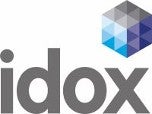Controlling the Controllables
The oil and gas industry faces new challenges daily, from geopolitical upheaval to sustainability expectations. Oil price volatility combined with escalating environmental and regulatory pressures are presenting oil and gas companies with a challenging business model – there is no leeway for project slippage or cost overruns. Yet the endemic lack of talent shared with many industries requiring engineering, procurement and construction skills, is creating additional pressures in the management of complex capital project execution.
It is, therefore, vital that companies leverage every opportunity to maximise the value of existing skills and impose strong control wherever possible. How can organisations avoid the errors, efficiencies and delays associated with manual methods? Where is the end-to-end visibility required to effectively manage multiple contractors? Or is the insight needed to ensure investors remain committed to long-term development?
Digitisation is transforming efficiency and oversight. From improving collaboration and accountability to achieving new levels of quality and transparency, organisations are increasingly turning to Deliverables Management to achieve the control required to deliver projects on time and within budget.
Transformative Control
Leveraging the comprehensive FusionLive EDMS, Idox’s Deliverables Management enhances efficiency, accountability, and project delivery by providing a central resource for planning, creating, tracking, and delivering end-to-end project outputs. Encompassing a wide range of documents, including engineering drawings, specifications, procurement contracts, construction schedules and quality control reports, effective Deliverables Management meets the needs of diverse stakeholders.
By streamlining project execution, enhancing collaboration, mitigating risk and ensuring regulatory compliance, Deliverables Management enables:
- Project managers, document controllers, and engineers are needed to track and manage deliverables efficiently, ensuring timely completion and using real-time data to support critical decision-making.
- Contractors and suppliers leverage greater visibility, communication and collaboration to improve operations whilst also seamlessly submitting and tracking deliverables to ensure deadlines are achieved.
- Quality assurance teams to utilise accurate, up-to-date information for compliance and audits, using proactive issue resolution to minimise risk.
- Owners and investors use excellent visibility into deliverables progress for effective management, reducing both financial and contractual risk.
Deliverables Management has enabled multiple Oil and Gas companies to overcome the problems associated with manual processes, including delays and errors. By centralising document storage, automating workflows, and improving collaboration, the company was able to significantly streamline its project delivery process. This resulted in reduced project timelines, improved quality and enhanced stakeholder satisfaction. Additionally, the digital transformation enabled the company to leverage data analytics to identify trends and optimise its project management practices.
EDMS Foundation
Deliverables Management leverages the EDMS foundation to provide a central source of disparate information and enable secure, effective collaboration as well as supporting workflows to deliver new levels of efficiency.
- Consistent information: a central data repository provides a single source of project information for all project deliverables. This provides fast access to trusted, up to date information, accelerating processes. Strong version control ensures the latest versions of documents are available whilst also tracking document history, providing strong audit control. In addition, tag management transforms the collection of information, improving the way staff can identify and manage both equipment and components within technical documents.
- Streamlined operations: the automation of routine tasks, such as document routing, approvals, and notifications, minimises the risk of error and improves efficiency. This releases project teams to focus on higher-value activities whilst also avoiding delays that can lead to project slippage. Furthermore, by automating the validation of tags in drawings and improving searchability, navigation and content organisation, organisations can streamline workflows to achieve further efficiency gains.
- Close collaboration: the ability to securely share information between project stakeholders provides the foundation for improved communication and cooperation, supporting greater efficiency and faster project delivery. The addition of tag management to improve information searchability, navigation, and content organisation further enhances centralised project collaboration by ensuring data is continuously collected and shared with the right participants at the right time.
Conclusion
In a changing energy landscape, there are so many aspects of Oil and Gas development and delivery that remain outside an organisation’s control. By using Deliverables Management to control the controllables, companies can transform operations, improve efficiencies, cut costs and create substantial value.

